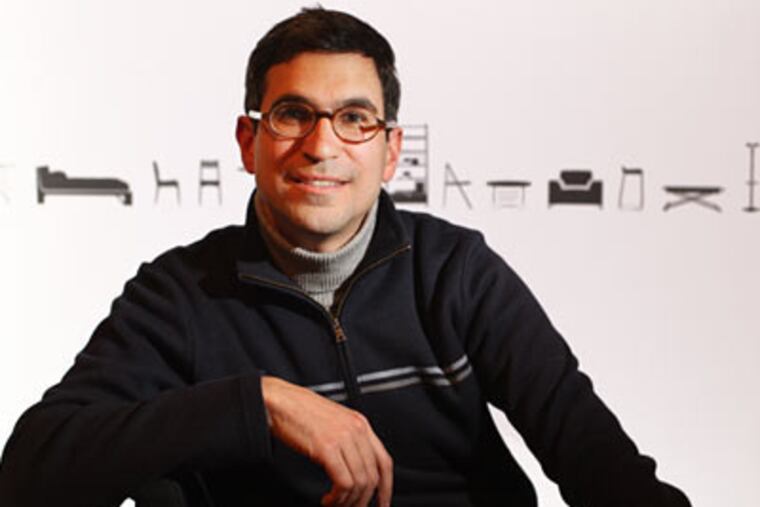Daniel Rubin: The heroes among us
At family events there was always that other table. Barry Belsky would ask a relative who those old folks were with the strong Eastern European accents, and the answer would be, "Those are the people who were in the forest with your uncles."

At family events there was always that other table.
Barry Belsky would ask a relative who those old folks were with the strong Eastern European accents, and the answer would be, "Those are the people who were in the forest with your uncles."
His uncles never explained. The story was too buried, too awful.
"They didn't want to disturb their children with something that made no sense," says Belsky, who is 42, horn-rimmed, and wears a black yarmulke as he sits in his Old City business, Mr. Barstool.
"A lot of them were bothered with the 'Why me?' question. It made no sense for any of them to have survived."
Not until his uncle Tuvia died in 1987 did Belsky come to understand how the reserved, pensive man who ran a small trucking company with his brother had led a fierce, armed resistance during World War II.
Belsky's three uncles, Tuvia, Zus and Asael, were famous tough Jews - strapping, earthy, profane men who commanded partisans in German-occupied Belorussia. When the Nazis and their collaborators began exterminating Novogrudok Jews in December 1941, the brothers took to the woods that bordered their family farm.
Tormenting their tormenters
They formed the Bielski Otriad, a movable detachment of men, women and children, and they took brutal revenge on their persecutors. His uncles were nothing like the victims that Belsky had pictured when he studied the Holocaust. They helped more than 1,200 people survive the war.
Their story is the subject of the film Defiance, which opened around the nation on Friday. That Daniel Craig, the actor who plays James Bond, was chosen to portray Uncle Tuvia, is just one more surreal aspect about the attention the family tale is getting.
Belsky was in college when he read Tuvia's obituary. A few months later, more of his uncles' stories emerged during a memorial service in New York.
"They didn't talk to anybody about it," he says. Neither did his late father, an Orthodox rabbi. Joshua Belsky - he changed his last name when he came to America - was the second youngest of 11, and an uncle suggested he attend a yeshiva. He was in school when the war started, and the Polish army drafted him for its cavalry. The Germans captured him, never suspecting the six-foot horseman was a Jew. They turned him over to the Russians, who sent him to Siberia to string telephone wires.
Family pictures
That's him in the black hat and long white beard in the family photograph from Belsky's bar mitzvah in 1979. Next to the rabbi sits Zus, a playboy with a cigar and collar open to his hairy chest. "He was the cool guy," Belsky recalls, examining the faded photo. Tuvia, in a coat and tie, is more somber.
The youngest brother from the woods, Aron, sits with hands on his lap, watching the camera. "Very abrupt, very emotional," Belsky says. "He's quick to laugh or be in tears." Asael died fighting for the Russians soon after leaving the forest.
When the stories about the brigade started coming out, Belsky's older brother went to the surviving uncles and asked just what they'd done that so many knew of them.
"We saved lots of people," they told him. That's all. His uncles related one story that hinted at what sort of men they'd been. A neighbor kept moving his fence deeper and deeper onto the Bielski farm. "I guess he figured, 'What are they going to do about it? They're Jews.' "
The brothers banded together and gave the man a terrific beating.
In September, Belsky joined 150 relatives for a private screening of the movie at the Museum of Jewish Heritage in Manhattan. From the opening, grainy shots of Nazis rounding up villagers, he says, he felt as if he were living the movie.
"The first people killed are my grandparents. For the next two hours I thought I was in the woods myself. I often wonder how did they pull it off? How did they have the courage to even attempt it? How does one become like that?"